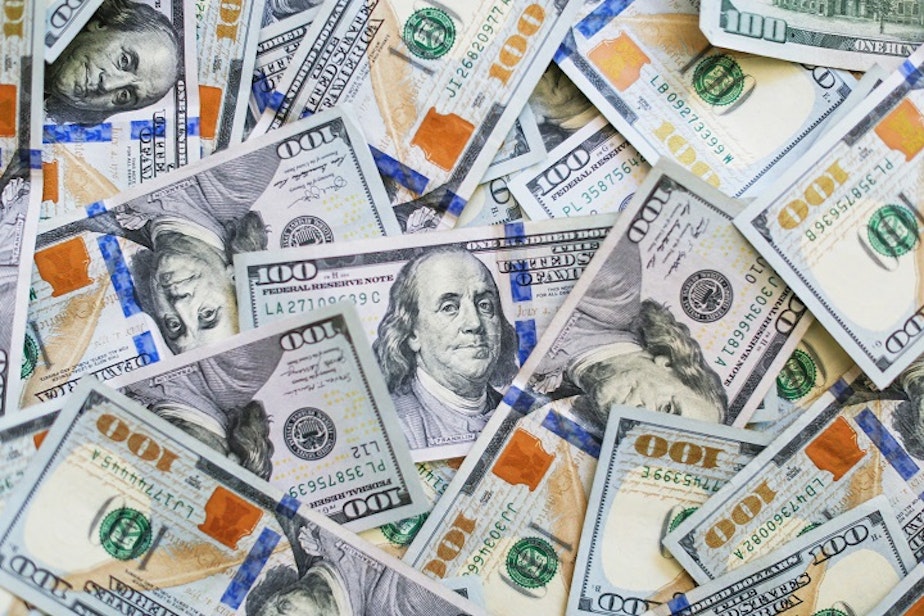WA lawmakers propose to ban companies like Amazon from spending on local elections

A new campaign finance bill that targets election spending by big companies will be introduced in Washington state in the coming session.
The bill would specifically prohibit "foreign influenced" corporations from spending any money at all on state or local elections in Washington. By "foreign influenced," lawmakers mean a company that has a significant amount of stock owned by people from other countries.
Rep. Sharlett Mena (D-Tacoma), who is sponsoring the bill, said her goal is to level the political playing field.
“That’s really important to me as someone who doesn't come from a family that's well connected or has a lot of money,” Mena said. “Ensuring that we can hear more from the folks that live in our communities as opposed to folks who are somewhere else and care more about the economic landscape for their business.”
Foreign nationals are already banned under federal law from participating in elections. Mena said her bill would close what she calls a “loophole” to that ban, which she sees occurring through foreign stock ownership.
Under the proposed law, any company that issues stock with 1% ownership by a single foreign national, or 5% in the aggregate of several foreign nationals, would not be allowed to make contributions.
Seattle passed a similar campaign finance law in 2020, after Amazon poured over a million dollars into city council races the prior year. Local law has since then prevented public corporations including Amazon from spending on city elections.
Sponsored
The idea is that because companies are answerable to shareholders, foreign stock ownership could, in practice, mean foreign “influence,” Mena said.
To illustrate her point, Mena brought up a climate ballot measure that voters rejected in 2018 after large companies rallied against it. Mena said that "foreign-influenced" corporate opponents spent about $31 million to defeat Initiative 1631, which would have taxed carbon emissions from big businesses in the state, with an aim of lowering pollution."
“Almost all of that came from BP, and also funding from Phillips 66, Koch Industries, Valero, and these are all companies with massive foreign influence who care about protecting their profit,” she said.
Mena's proposal would not prevent wealthy individuals — or groups like labor unions or real estate associations — from unlimited spending on political action committees.
Critics of Mena's new bill say it would unfairly restrict the First Amendment right of companies to participate independently in campaigns.
Sponsored
Minnesota passed a similar statewide law last year, which is currently tied up in court.
So far, Seattle’s law hasn’t faced any court challenges. But a legal opinion prepared at the request of state Democrats back in 2020, and first reported by The Seattle Times, pointed to “serious constitutional flaws.”




